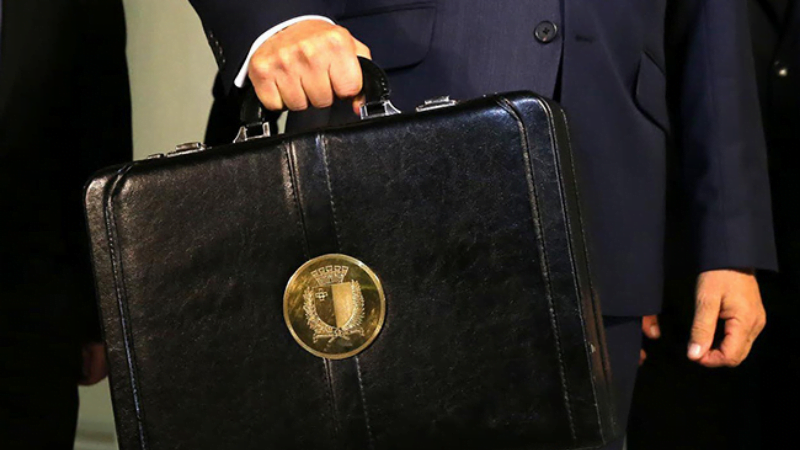Malta’s public debt ballooned by as much as €2.1 billion in the last 18 months, reaching unprecedented levels, risking falling foul of EU rules and threatening the fiscal stability that underpinned most of the past decade.
An analysis by The Shift, based on recent Eurostat data, shows that while Malta maintained stable debt figures, even reducing it for some years, borrowing levels have exploded since Robert Abela became prime minister early last year.
While the unprecedented increase may be partly attributed to the pandemic emergency, the government’s administration of public funds, increasing debt by hundreds of millions to divert into ‘corrupt’ contracts, jobs for political supporters in the public sector and public authorities and throwing money at various sectors of society for political exigencies has unnecessarily drained the nation’s finances of hundreds of millions of euros.
Our analysis shows that between January 2020 and July this year, Malta’s public debt increased from €5.7 to €7.9 billion – a staggering €2.2 billion – and is expected to significantly top the €8 billion mark by the end of the year.
The figures show that Finance Minister Clyde Caruana is falling far short of his own government’s financial targets.
According to the government’s own projections announced in the 2021 budget – when it was fully aware of the pandemic and its economic consequences – Malta should have finished this year with an annual deficit of 5.9 per cent of GDP and a debt level of 58.6 per cent of GDP.
However, these targets are now unreachable and projections see a deficit of at least double the budgeted figures. The government’s own revised expectations are for a record deficit of at least 12%.
According to the government’s 2021 plans, the State was going to spend some €800 million more than it earned. However, it hit this threshold in July, five months ahead of target. The government now expects to spend €1.6 billion more than it takes in this year – a development that will further burden the nation’s debt levels.
By the end of July national debt had already topped the end-2021 annual forecast, to hit €7.8 billion – the same amount the government predicted it would end the year on.
While all EU Member States are running a higher deficit than usual, due to measures taken to mitigate the pandemic-induced economic downturn, Malta still stands out, having registered the second-highest annual deficit in 2020, with only Greece ahead.
The situation is expected to be repeated this year.
Spending and borrowing like there’s no tomorrow
Financial analysts told The Shift that while Abela’s government is facing an economic crisis that necessitated bold financial intervention, “the government seems to be taking full advantage of the situation, spending much more than is required”.
“Apart from the necessary spending due to Covid, the government is borrowing hundreds of millions it does not have to put more people on a State salary, dishing out dubious and unnecessary public contracts, throwing money at all kinds of organisations and NGOs and paying much more for national projects without any checking and accountability.”
The analysts said the government will have to halt this spending at some point soon, probably following the elections because it will all need to be paid back by the public.
Taking advantage of EU rules’ relaxation
The extent of deficit, debt and borrowing the government has entered into is not normally permitted under the EU’s Stability and Growth Pact rules. However, the EU’s decision to suspend its rules for the duration of the pandemic has given the PL administration the leeway to ramp up debt by more than 20% of GDP in just 18 months.
Euro area rules, suspended in March 2020, mean that in normal times, Member States are not allowed to run a budgetary deficit of more than 3%. The suspension of the rules is, however, temporary, and will be removed at some point, expected to be no later than 2023.
This means that as the EU mechanism is re-established, it is more than likely that Malta will face an excessive deficit procedure by the EU. This implies the imposition of severe austerity measures to bring Malta back in line with the 3% deficit and debt ratio of under 60% of GDP rules.
Malta registered an unprecedented deficit of 10.1% in 2020, which will make 2021, now expected to be even larger, the second consecutive year to break records.
Before that, over the past 10 years, Malta’s highest deficit was registered in 2012 when it stood at 3.4%.













Make the all the crooks from the muvument korrot including all the distrusted people of trust to refund their illicit gains. I’m confident that the country’s debt will be reduced by at least half a billion.
Half a billion? The illegal St Vincent de Paul deal on its own is worth over €300 million…
https://www.youtube.com/watch?v=7UJ_60JrWzA
U umghbad jigi il ministru tal finanzi jajdilna Budget minghajr taxxi. Veru qabel l elezjoni u wara ?. Kunu sinciera mal popluu mhux tahsbu li kullhadd GAHAN. Veru li kien hemm l ispejjez tal covid imma it tberbiq zejjed u flus fuq konsulenti bla razan setaw gew evitati. Poplu tibqax GAHAN u tibla kollox.
Besides the concerns about meeting the EU’s strict budget regulations, Malta’s unsustainable deficit has major concerns for the public at large about how it will affect their personal finances and standards of living in the years ahead. With Labour in government, spending Other People’s Money guarantees difficult years beyond the horizon.
Altru milli L-Aqwa Zmien.
Spending €450,000 on embellishing a flight of s steps at Balluta is a clear sign that no one has a tab on the country’s finances, this in spite of a runaway expense account.
One really wonders into whose pocket the half-million is going and why.
I believe it is referred to as “scorched-earth policy”. “Labour” is the scorch, the rest you can work out for yourself.